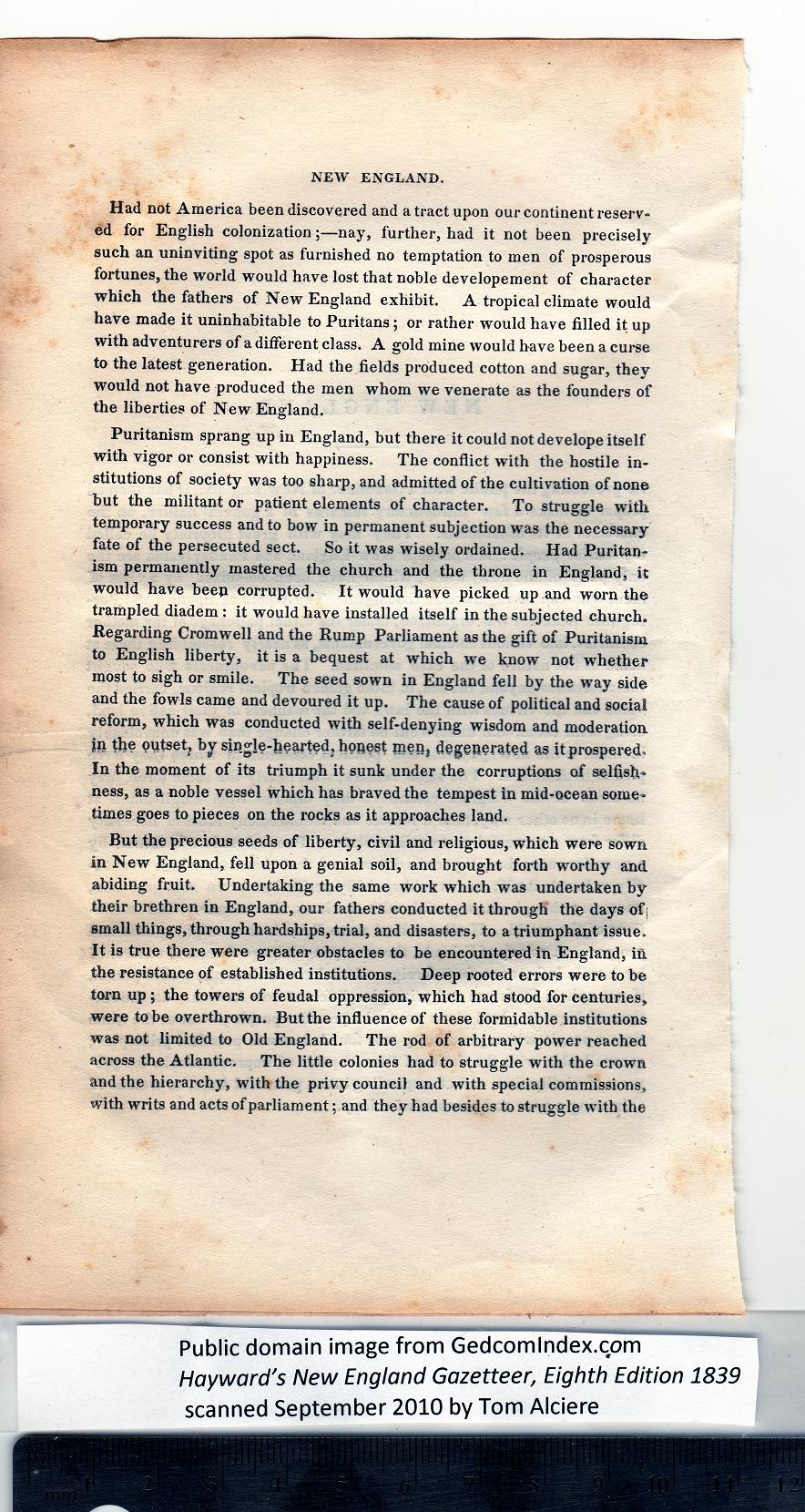|
NEW ENGLAND.
Had not America been discovered and a tract upon our continent reserv¬
ed for English colonization;—nay, further, had it not been precisely
such an uninviting spot as furnished no temptation to men of prosperous
fortunes, the world would have lost that noble developement of character
which the fathers of New England exhibit. A tropical climate would
have made it uninhabitable to Puritans; or rather would have filled it up
with adventurers of a different class. A gold mine would have been a curse
to the latest generation. Had the fields produced cotton and sugar, they
would not have produced the men whom we venerate as the founders of
the liberties of New England.
Puritanism sprang up in England, but there it could not develope itself
with vigor or consist with happiness. The conflict with the hostile in¬
stitutions of society was too sharp, and admitted of the cultivation of none
hut the militant or patient elements of character. To struggle with
temporary success and to bow in permanent subjection was the necessary
fate of the persecuted sect. So it was wisely ordained. Had Puritan¬
ism permanently mastered the church and the throne in England, it
would have beep corrupted. It would have picked up and worn the
trampled diadem : it would have installed itself in the subjected church.
Regarding Cromwell and the Rump Parliament as the gift of Puritanism
to English liberty, it is a bequest at which we know not whether
most to sigh or smile. The seed sown in England fell by the way side
and the fowls came and devoured it up. The cause of political and social
reform, which was conducted with self-denying wisdom and moderation
jp the outset, by sipgle-hearted, hoqest men, degenerated as it prospered.
In the moment of its triumph it sunk under the corruptions of selfish*
ness, as a noble vessel which has braved the tempest in mid-ocean some¬
times goes to pieces on the rocks as it approaches land.
But the precious seeds of liberty, civil and religious, which were sown
in New England, fell upon a genial soil, and brought forth worthy and
abiding fruit. Undertaking the same work which was undertaken by
their brethren in England, our fathers conducted it through the days of j
small things, through hardships, trial, and disasters, to a triumphant issue.
It is true there were greater obstacles to be encountered in England, in
the resistance of established institutions. Deep rooted errors were to be
torn up ; the towers of feudal oppression, which had stood for centuries,
were to be overthrown. But the influence of these formidable institutions
was not limited to Old England. The rod of arbitrary power reached
across the Atlantic. The little colonies had to struggle with the crown
and the hierarchy, with the privy council and with special commissions,
with writs and acts of parliament; and they had besides to struggle with the
PREVIOUS PAGE ... NEXT PAGE
This page was written in HTML using a program written in Python 3.2 and image-to-HTML text generated by ABBYY FineReader 11, Professional Edition.
|
